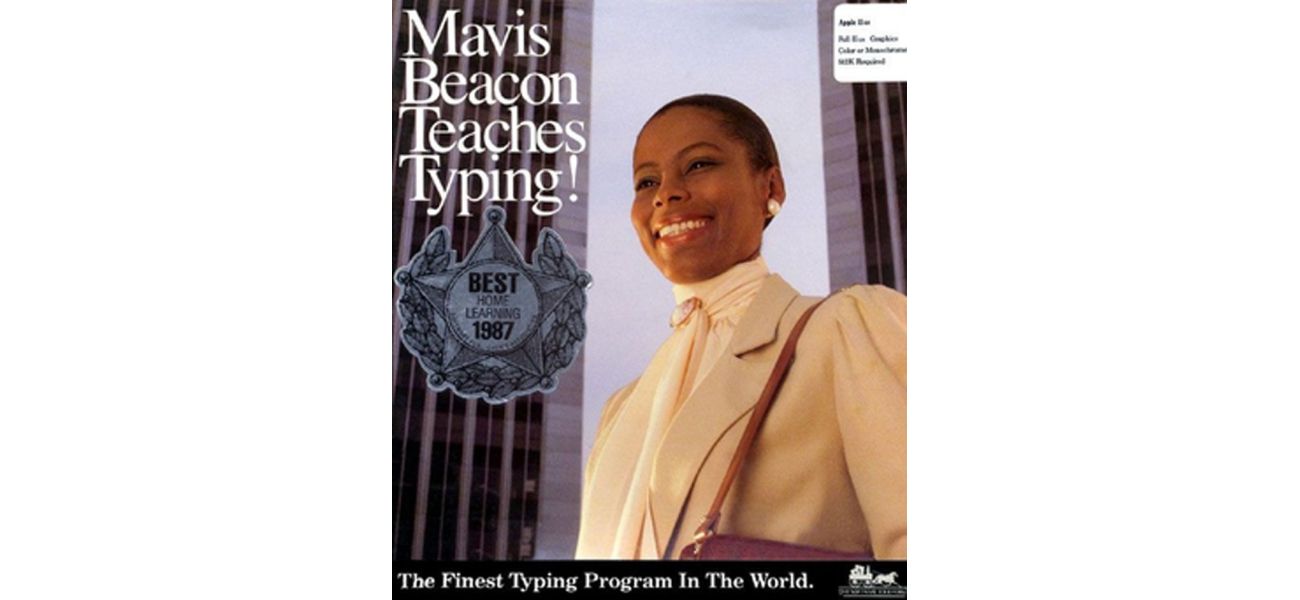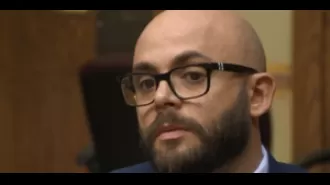Did the beloved 90s icon who influenced a generation actually exist, or was she just a figment of our imagination?
October 27th 2024.

Next up, let's take a trip down memory lane to the 90s, a decade that saw a major technological boom. During this time, computers became a staple in both classrooms and households worldwide, and with them came a new essential skill - typing. This is where our story begins, with the introduction of a groundbreaking educational software - Mavis Beacon Teaches Typing.
Mavis Beacon, a pioneering figure in the tech world, became a household name as she helped students master the art of typing through interactive games and challenges. She quickly became a beloved teacher to millions, and her popularity grew so much that she was invited to speak at lectures and conduct workshops across the United States.
However, there's a catch - Mavis Beacon isn't a real person. Well, not entirely. A quick Google search will tell you that she is, in fact, a fictional character. But there's more to the story than meets the eye.
Filmmakers Jazmin and Olivia were determined to uncover the truth behind Mavis Beacon's legacy during the pandemic. As they dug deeper, they realized that Mavis had a much more significant impact than just teaching people how to type. To Jazmin, she was like a "cyber doula," guiding her through her earliest memories of using a computer. And for Olivia, who didn't grow up with Mavis, discovering her through Jazmin was a "healing" experience.
As they delved into Mavis's origin story, they learned that she was based on a real person - Haitian model Renee L'Esperance. However, Renee was only paid $500 for the use of her likeness in the software. The creators of Mavis Beacon Teaches Typing wanted their product to be as marketable as possible, and they saw Renee as the perfect fit. But for Jazmin, seeing a black woman on the cover of an educational software was significant. As a cyberfeminist artist, she believes that she wouldn't be where she is today without Mavis Beacon's influence.
But as Mavis's popularity soared, Renee slipped into obscurity. She eventually sued the company for misusing her image and settled out of court. In the documentary, Jazmin and Olivia's emotional quest to find Renee takes them on a five-year journey filled with missing person posters, attempts to reach out to her family, and a sense of futility.
In the end, they uncover the truth behind Renee's disappearance and the moral questions surrounding AI and ownership. They question the role of a black woman perpetually stuck in the digital world and the power of consumers to opt-out and push back against the use of stolen data.
But ultimately, Renee chose her autonomy, and the documentary pays homage to her and the impact Mavis Beacon has had on countless people over the years. It's a story of love, care, and the pursuit of justice for Renee, who finally gets her due.
Mavis Beacon, a pioneering figure in the tech world, became a household name as she helped students master the art of typing through interactive games and challenges. She quickly became a beloved teacher to millions, and her popularity grew so much that she was invited to speak at lectures and conduct workshops across the United States.
However, there's a catch - Mavis Beacon isn't a real person. Well, not entirely. A quick Google search will tell you that she is, in fact, a fictional character. But there's more to the story than meets the eye.
Filmmakers Jazmin and Olivia were determined to uncover the truth behind Mavis Beacon's legacy during the pandemic. As they dug deeper, they realized that Mavis had a much more significant impact than just teaching people how to type. To Jazmin, she was like a "cyber doula," guiding her through her earliest memories of using a computer. And for Olivia, who didn't grow up with Mavis, discovering her through Jazmin was a "healing" experience.
As they delved into Mavis's origin story, they learned that she was based on a real person - Haitian model Renee L'Esperance. However, Renee was only paid $500 for the use of her likeness in the software. The creators of Mavis Beacon Teaches Typing wanted their product to be as marketable as possible, and they saw Renee as the perfect fit. But for Jazmin, seeing a black woman on the cover of an educational software was significant. As a cyberfeminist artist, she believes that she wouldn't be where she is today without Mavis Beacon's influence.
But as Mavis's popularity soared, Renee slipped into obscurity. She eventually sued the company for misusing her image and settled out of court. In the documentary, Jazmin and Olivia's emotional quest to find Renee takes them on a five-year journey filled with missing person posters, attempts to reach out to her family, and a sense of futility.
In the end, they uncover the truth behind Renee's disappearance and the moral questions surrounding AI and ownership. They question the role of a black woman perpetually stuck in the digital world and the power of consumers to opt-out and push back against the use of stolen data.
But ultimately, Renee chose her autonomy, and the documentary pays homage to her and the impact Mavis Beacon has had on countless people over the years. It's a story of love, care, and the pursuit of justice for Renee, who finally gets her due.
[This article has been trending online recently and has been generated with AI. Your feed is customized.]
[Generative AI is experimental.]
0
0
Submit Comment





